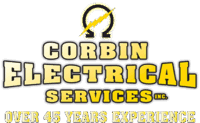 A generator is a big financial investment, and it’s also an investment in peace of mind. Knowing your RV generator is up and ready to go means you’ll be ready for adventure at a moment’s notice. Following just a few simple guidelines can help ensure your RV generator lasts as long as possible:
A generator is a big financial investment, and it’s also an investment in peace of mind. Knowing your RV generator is up and ready to go means you’ll be ready for adventure at a moment’s notice. Following just a few simple guidelines can help ensure your RV generator lasts as long as possible:
Practice regular preventive maintenance.
Your generator manufacturer will provide guidelines regarding how often to perform maintenance activities as well as the types of maintenance that needs to be performed for optimal performance. Generally speaking, regular maintenance includes cleaning, inspecting and lubricating the components of your generator and running it to make sure it’s operating properly. You’ll also need to check the exhaust system and any connections and gaskets for wear. Regular maintenance is the most important thing you can do to prolong your generator’s life.
Keep plenty of supplies on hand.
Having oil, filters and basic maintenance and repair supplies and tools makes it easy to perform preventive and scheduled maintenance and to make minor repairs or adjustments so your generator runs properly. It’s very easy to postpone maintenance when you find you don’t have the materials you need. Make it as convenient as possible by keeping a good stock on hand.
Protect your generator during “down time.”
For long-term storage, change the oil and filter and follow any other instructions in your user manual regarding fuel, gaskets and connections. Adding a fuel stabilizer helps prevent gunky buildup in your engine or tank.
Optimize it for your weather.
Changes in temperature can result in a need for a different thickness – or viscosity – of oil to help your generator’s part stay lubricated and avoid harmful friction. Very cold weather causes oil to become thicker, so switching to an oil with a lower viscosity may make good sense. Check your operator’s manual for guidelines for your unit.
Run it occasionally – even if you don’t need to.
Running your generator on a regular basis throughout the year helps you spot problems early and it also keeps the system properly lubricated to extend motor life. Plus, the heat from the generator motor prevents moisture buildup that can cause components to break down and allow rust to form.
Follow your manufacturer’s guidelines.
Different generators have different maintenance requirements and operational guidelines that change over time. Don’t think you “know it all” simply because you’ve used a generator in the past. Take some time to read your manuals and get to know your RV generator – both the way it works and little signs during operation that could indicate it’s in need of maintenance or repair.
And of course, always operate your generator outside and away from your home to avoid carbon monoxide poisoning. Install a carbon monoxide detector if your RV doesn’t have one, and make sure the exhaust system is in good shape before running your generator. Need some help? Call us at (732) 536-0444.


